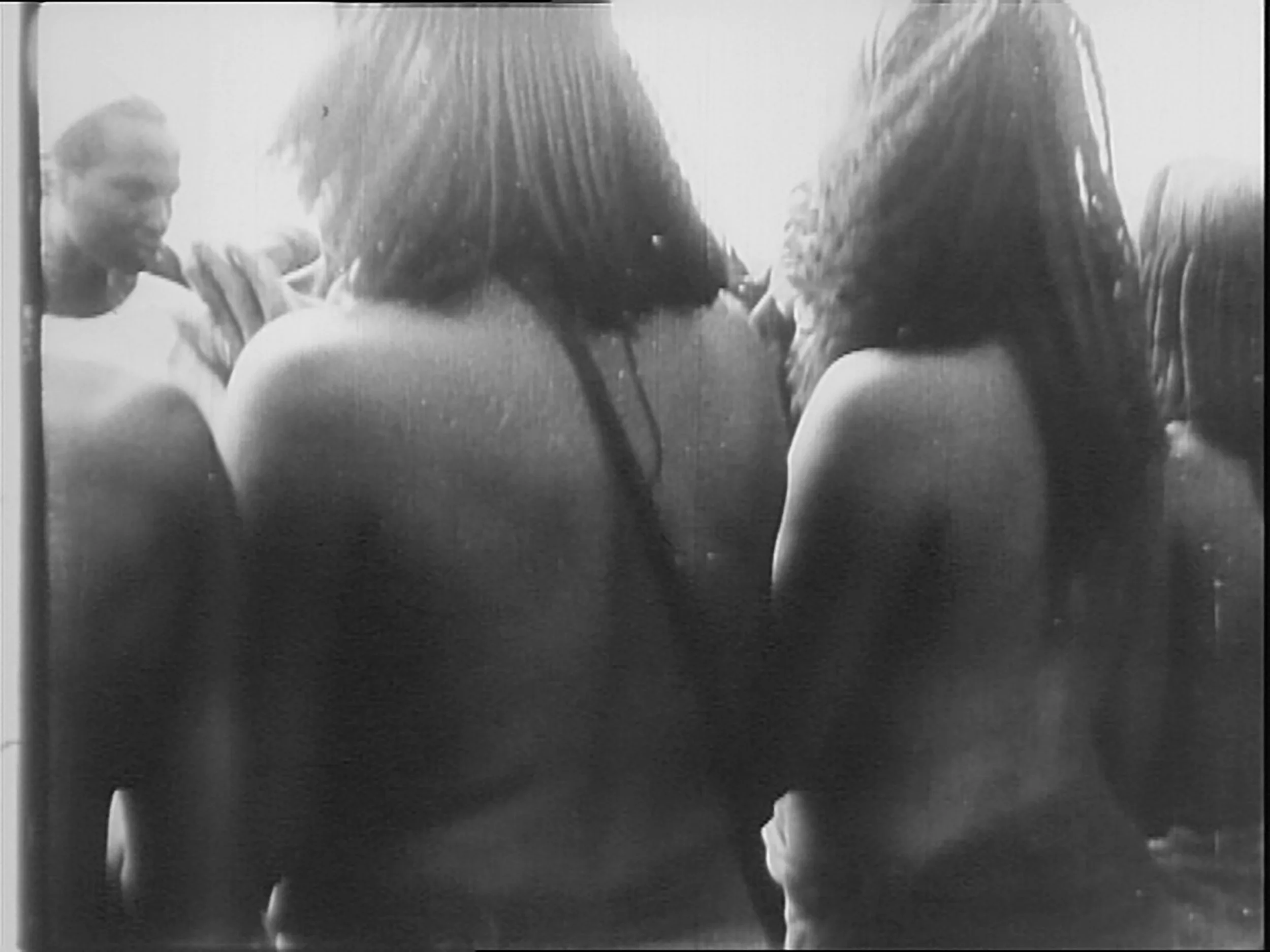In a session combining film screening, out loud reading, and discussion, curator and researcher Nora Heidorn and artist Onyeka Igwe think together about questions of how to work (with each other, with other's stories, with images, documents, complex histories, etc.). The reading group meeting will take place in person and is kindly hosted by Mimosa House.
Reading & Viewing
We will read out loud together from Igwe's article ‘being close to, with or amongst’ (‘Feminist Review,’ 2020) and watch her film Specialised Technique (2018).
The article elaborates Igwe's working method of "critical proximity": a way of interrogating, getting close to, and manipulating colonial films shot in West Africa that she encountered in British archives. The article and film will serve as a starting point to explore together questions of how to work: the process of developing creative, critical methodologies and feminist approaches to one's projects, practices and concerns.
There is no need to read the article beforehand, as we will read out loud together, one person, one paragraph at a time.
Booking
Reserve a place here. Booking will close on hour before the event.
Bios
Nora Heidorn curates exhibitions, public programmes, artist projects, and publishes her writing. Her practice is led by interdisciplinary research investigating sexual reproduction, health, and care through an intersectional lens and using artistic methods. She is undertaking an LAHP-funded PhD at the Royal College of Art, London in collaboration with Birth Rites Collection and she teaches at Central Saint Martins College, London. This year, she curated the exhibition Onyeka Igwe: Dancing with the Archive at Uferstudios in Berlin and the screening Being Horizontal: Vulnerability, Care and Resistance as part of Confabulations: Art History, Art Practice, Critical Medical Humanities and she presented her PhD research in a paper titled Touching Matters of Care: A Visual Approach to the Care and Violence in Dr Marie Stopes’ Birth Control Campaign at the Institute of Cultural Inquiry in Berlin.
Onyeka Igwe is an artist and researcher working between cinema and installation. She is born and is based in London, UK. Working across cinema and installation, Igwe creates non-fiction films that use text, images, and film from historical archives to shift the maps of how we understand the past and the present. Her films unfold like figure eights, led through music, performance, and mesmerizing voice-overs. Using a forensic lens, she draws audiences into individual and shared stories that expand onto a multiplicity of narratives, rather than a singular, reductive history. Igwe was awarded the 2021 Foundwork Artist Prize, 2020 Arts Foundation Futures Award for Experimental Short Film, and is the recipient of the Berwick New Cinema Award in 2019.
Nora and Onyeka recently worked together on Onyeka's first solo exhibition in Germany, Dancing with the Archive at Uferstudios in Berlin (2022).
Image Credit
Still from Onyeka Igwe, Specialised Technique (2018)
Feminist Duration
This workshop is part of the Feminist Duration series which explores under-known texts, ideas, and movements associated with earlier periods of feminist activity in the UK. Originally designed as part of a year-long residency at the South London Gallery, and rescheduled online in the wake of the COVID pandemic, the programme juxtaposes earlier moments of feminist with current urgencies and struggles. By restoring material texture to overlooked political and cultural movements, it seeks to resist versions of the past that reduce feminist struggle to one-dimensional stereotypes. Looking to the past to activate its nascent potential, the programme aims to identify tools that can inspire and enrich further collective action, promoting the intergenerational exchange of knowledge and experience. While honouring earlier feminisms, the series also highlights how collaboration, difference, and dissent have characterised previous feminist movements, and how feminists have both negotiated, and failed to significantly attend to, differences between themselves.

